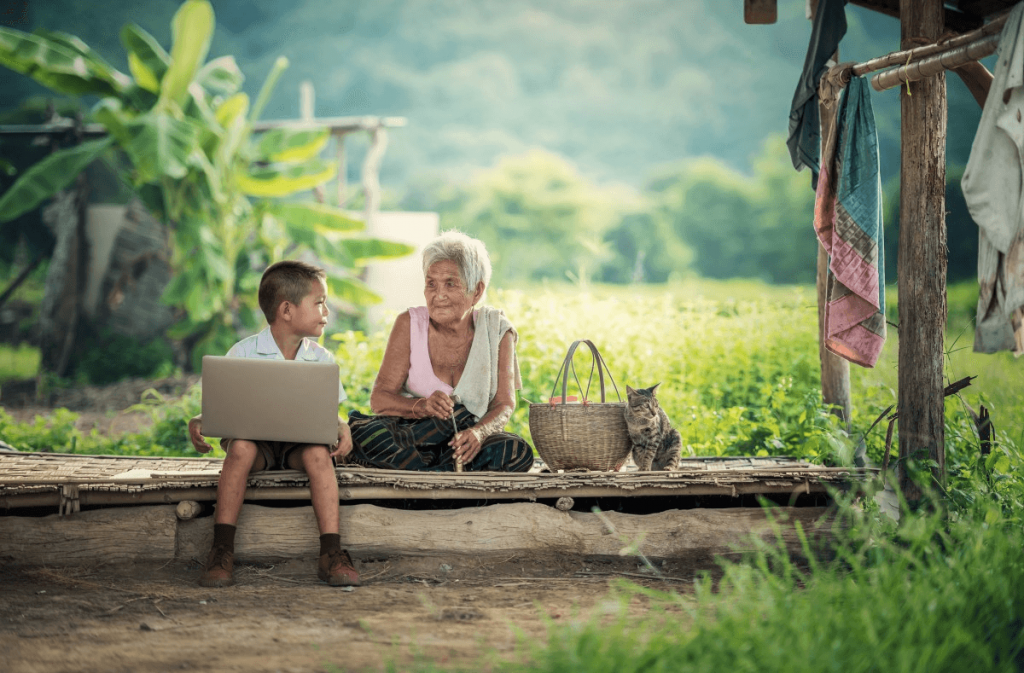Solar energy used to improve education and day-to-day lives in rural Myanmar
Did you know that inhaling the fumes from just one kerosene lamp is equal to smoking 40 cigarettes? More than 1 billion people around the world still need to burn kerosene for light. Together with our partners, we are aiming to replace at least some of these kerosene lights all-the-while improving education, health and livelihoods in Myanmar.
As a company dedicated to spreading solar technologies, sustainability is one of the core values we strive to integrate. We want to support people in thinking sustainably while making a real difference in the world’s energy transition phase.
In January 2019, we embarked on a new journey when we decided to work with Andres Meesak from the Estonian PV association and the NGO Mondo to install photovoltaic systems in Myanmar. This project marks an important step in our quest to spread sustainable growth in developing countries in order to preserve the planet’s resources while truly improving people’s day-to-day lives.
The technical expert, Andres Meesak, visiting the area in April 2019
Helping the developing world
Today, Myanmar has one of the lowest electrification rates in Southeast Asia. As of 2018, almost 60% of the nation’s citizens were disconnected from the grid, while those few who were connected, had to endure frequent grid blackouts. A strong boost in power supply is needed to bring electricity to millions of people and help the state’s economy.
For this reason, we have provided PV systems to our partner, the Estonian Solar Electricity Association, who will install them in Namlan, Myanmar.
This town is in the Shan State, a remote rural area inhabited by several ethnic groups. The region is one of the least developed in the world still afflicted by frequent conflicts due to hatred between the different ethnic communities. The conflicts were so severe, that the installation had to be postponed for a few months (it was previously planned for November 2019).
Technology
The installation will consist of two larger systems and ten small off-grid installations with a total power of 25kW. Solarity will provide 90 pieces of Canadian Solar CS6K-275P modules, Victron inverters, and KBE cables. The larger systems will power a local town school and a student dorm. The off-grid systems will be installed to a dozen households in the more isolated villages.
In May 2020, the goods have safely arrived at their destination. They are now safely stored in a local school until the international travel restrictions connected with COVID-19 are lifted.
Locals unloading Canadian Solar modules in Namlan, Myanmar (photo credit: Mondo)
Empowering local communities
Despite the fact that the school and dorms are connected to a public grid, the locals need to use diesel generator sets almost every day as the grid is very unstable. By replacing diesel with solar, the community will secure a consistent power supply without any noise, power cuts, or air pollution. The new power source will not only be environmentally friendly and reliable, but it will also help cut back on fuel costs on a long-term basis.
We will supply a small local off-grid set consisting of a solar panel, a battery and a few LED lights to a dozen students’ families that do not have access to electricity. In addition to the solar systems, 20 pieces of Maple 3 devices will be donated by Canadian Solar. Maple 3 is a portable lighting and charging solution that can be used as a standard light, an SOS signal, or even as a mobile power-bank. For families with no access to electricity, this device may become a useful home-based solution.
Thanks to the solar systems and the Maple devices, children will be able to study even after dark. The new systems will also help their parents to work, run small businesses or use home appliances long after the sun has set without worrying about the cost.

Ensuring sustainable development
For a long-term, safe, and reliable energy solution, it is crucial to invest in teaching local servicemen to look after the installed solar systems. Thanks to extensive knowledge-sharing seminars planned by our partners from the Estonian PV Association, a local technical team will be trained onsite to resolve any maintenance issues that could arise in the future.
The installation was set to occur in February 2020, but due to the COVID-19 situation, the project had to be postponed. In autumn, once the pandemic is hopefully over, we are planning to go to Myanmar and install those systems together with our partners. We at Solarity are looking forward to updating you on the progress of this project in our future blog posts!
PV material ready to be installed (photo credit: Mondo)

Subscribe to our newsletter
so that you don’t miss any news!










